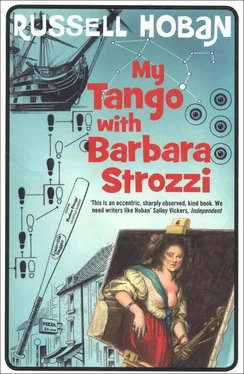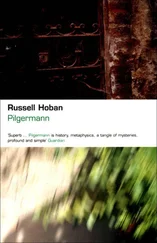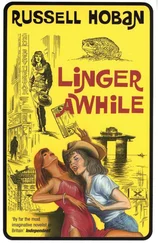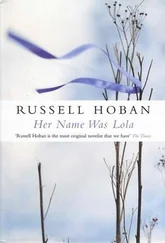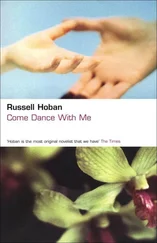Constanze handed me her little CD player and headphones. ‘Here’s a working recording of one of my songs called “Blue Mountains”.’
I started the disc. Over the sound of instruments tuning up Constanze’s voice said, ‘“Used-To-Be” take three.’ After a short silence there was the wavering melody of a flute, then a violin and a cello came in over a quietly pulsing drumbeat. I imagined a distant escarpment under a wide sky. The flute faded out and the strings and drums continued under a woman’s voice speaking low and breathily, as in the intimacy of the small hours. A naked voice making itself heard in the darkness. At first I thought it was a black woman, then I recognised the voice as Constanze’s:
Kopelo, kopelo e e iketlileng mo tsebeng ya moja
Ee, kopelo ee ritibetseng e le runi
Jaaka phala ya selemo se se fetileny mo tsebeng yame
Sona Sepoko, ke go raa ke go raa
Ke tlaabo ke aka go rileng?
Sone Sepoko sa maloba-le-maabane Aiyeeah!
Understanding not a word, I was filled with a great sadness. ‘What language is that?’ I asked.
‘Setswana,’ she said. Her voice on the disc paused. The music came up and she sang with it wordlessly and very low. Then she continued speaking:
Aiyeeah! Kutlobotlhoko ya sona ta se opela
Sona Sepoko sa maloba-le-maabane!
Se a opela, Se a opela sona sa fa loapi le ne le tlhapile,
dithaba di boitshega letsatsi ke bosigo jwa lona
di ya lolololo dinoka di elela!
The music changed, the drums became more urgent. Constanze’s voice went higher and the words came more quickly:
Utlwa fa ke go rao Nao, O itse tsa moloba-le-maabane
Kwa re tswang gona mmogo, fa lorato le ne re aparetse
le tletse mo pelong tsa rona, aiyeeah!
Le kae jaanong, le sietse kae?
Gore loapi le be le thibile jaona, dithaba di sa
ntsikinye, dinoka di kgadile jaana! Aiyeeah ka
iketlo mo tsebeng ya moja kopelo ya sepoko sa
moloba-le-maabane. Mo tsebeng ya molema go utlwala
fela kgakalo ya dikgang tsa sesheng, pherethlano
mo mebileng le modumo wa tse di fetileng .
Always the sadness came to me in those words I couldn’t understand. The vowels and the consonants had a life of their own that seemed also to be my life. I remembered how it was when Mimi and I were first in love, the newness of the world. And I remembered the sadness when love had gone and we stood in a dry riverbed. The flute was alone again and I could see for miles. High overhead a hawk circled, sharp against the blue. The violin and cello and drums came in and over them Constanze singing in English:
Singing, singing tiny in my right ear,
in my right ear only, yes! Singing tiny
like the summer’s last cicada in my ear,
a ghost! That’s what I’m telling you –
why should I lie? The ghost of used-to-be!
Aiyeeah!
Her voice was thrilling, with a wildness under the words that sometimes almost whispered, sometimes soared. The sound of the instruments and her voice together seemed layered with before and after:
The sadness of it singing there, that
ghost of used-to-be! It sings, it sings of
when the sky was very wide, the mountains
were magic, a day and a night were for ever
and the rivers never dried up.
Hearing the English now with the Setswana behind it I smelled the sun-warm grass, tasted used-to-be on my tongue.
Now Constanze’s was more urgent as the words came faster:
Hear what I’m saying! You know that used-to-be,
you know we lived there, you and I, when love
was with us, when love was in our hearts, aiyeeah!
Where is it now, where has it gone, that the sky
has become little, the mountains nothing special,
the rivers all dry? Aiyeeah!
Tiny in my right ear sings that ghost of
used-to-be. Loud in my left ear is the news on the
hour, the traffic in the streets, the roar of
all-gone.
Silence and the sound of traffic on Putney Bridge. I opened my eyes. There was the river and I was in London again. ‘You look sad,’ said Constanze.
‘“Used-To-Be” is a sad song,’ I said.
‘Oh shit,’ she said. ‘That was meant to be “Blue Mountains” in the player. I didn’t mean for you to hear “Used-To-Be.”’
‘Why not?’
‘I’m still working on it.’
‘Is there a ghost in your ear, Constanze?’
‘Always. Africa is full of ghosts.’
‘So is every place. I was wondering if the song is about a particular used-to-be in your life.’
‘Can we talk about something else?’
‘Sorry for the intrusion. It’s a beautiful song and a terrific performance. Is anyone else doing anything like this?’
‘Not that I know of.’
‘How did you become so fluent in Setswana?’
‘I learned it from my nanny. She was from Bophutatswana and her name was Omphile which means God’s gift. When I was a baby she carried me around on her back in a towel while she did the household chores. She had a baby of her own who was living with Omphile’s mother in the homeland — that’s what Bophutatswana was during apartheid.’
‘So Omphile raised you while the grandmother raised her child.’ I had to shake my head at that.
‘That’s how it was,’ said Constanze. ‘Nannies usually had to speak Afrikaans or English in the houses where they worked but my parents thought it was good for me to learn Omphile’s language.’
‘Why did you speak the song in Setswana?’
‘I wrote it in that language and then translated it into English. I think my songs in Setswana, that’s how they come to me. Setswana has Omphile in it and her people and where they came from. I like to keep this inside me, so let’s not talk about it any more. I read Hope of a Tree last night.’
‘And?’
‘I like the way you write and I liked the ideas in the book but I didn’t think it was a very good novel.’
‘Can you say why?’
Constanze thought about it for a while. Her face was one that changed from moment to moment; now, when she was mentally rehearsing what she would say, she looked about eighteen. ‘There wasn’t really any hope in it,’ she said. ‘It just runs downhill in a straight line. It starts with Cynthia standing on Clifton Bridge looking down at the Avon Gorge. Is she going to jump? Sam thinks so. He says, “It’s a long way down.” She says, “It’s a short trip though.” He tries to distract her, says, “Have you seen the camera obscura at the observatory?” And of course she says, “I don’t need to — I’ve been living in a dark chamber for a long time.” So you wonder if Sam is a suicide saver, the way some people are drunk savers. It never works, and you know it won’t work for Sam and Cynthia so it’s no surprise when it doesn’t.’
‘Life is like that sometimes,’ I said.
‘Sure, but why bother with that kind of story?’
‘I was trying to do a story where one thing follows another in a chain of cause and effect that goes right down the line to its inevitable end. Have you seen Kaurismäki’s film The Match Factory Girl ?’
‘No.’
‘That’s a straight cause-and-effect film. Iris, the match factory girl, after being treated badly by her mother, her mother’s live-in boyfriend, and a man who picked her up in a bar, puts rat poison in their drinks and in the end is led off by the police. Very bleak, but it leaves you feeling good.’
‘Ah, but there’s a positive element in that. She fought back with the rat poison. Cynthia and Sam didn’t do anything like that so there’s nothing to feel good about.’
Читать дальше
